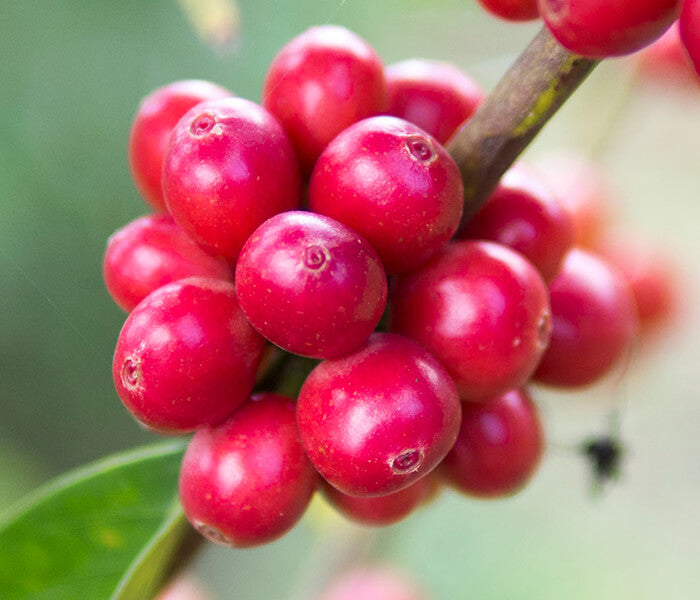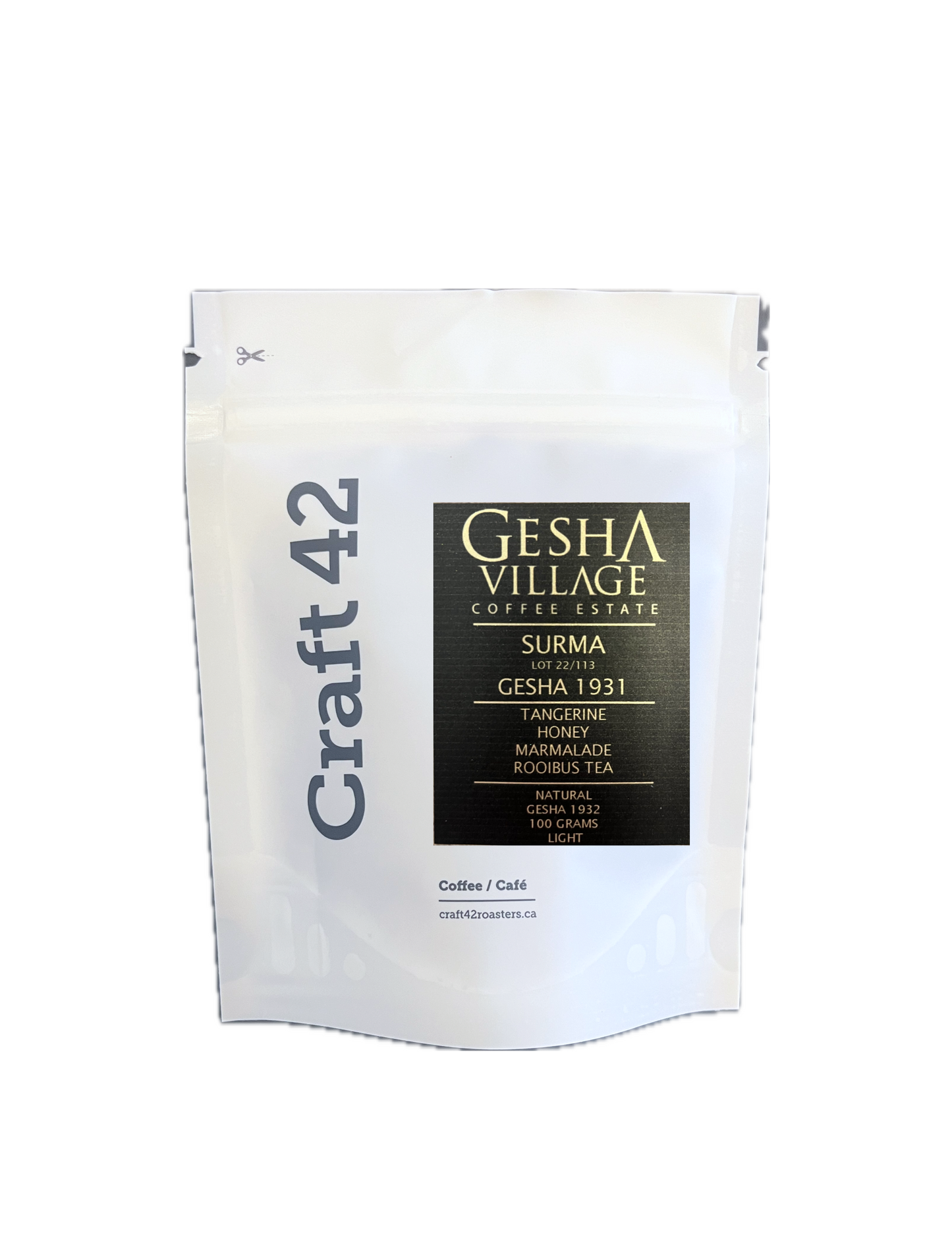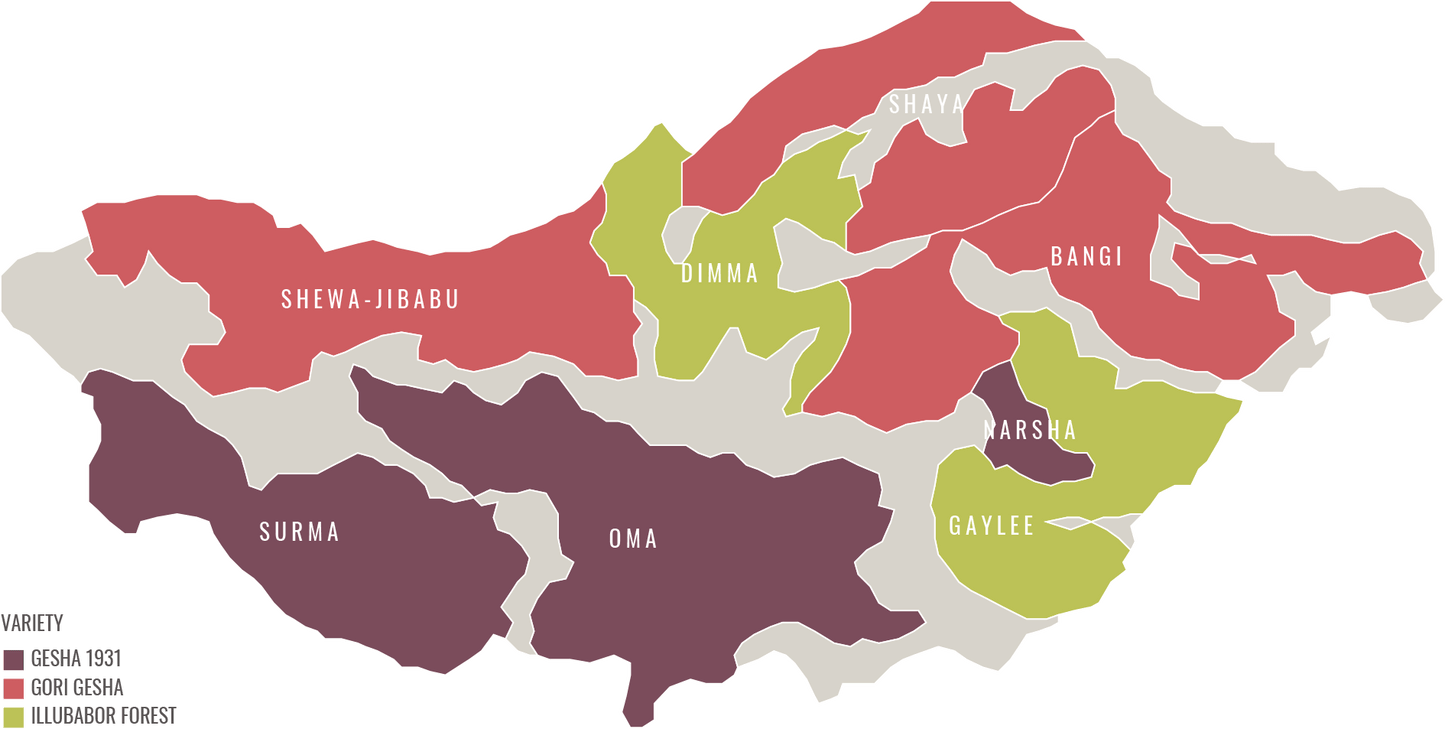Surma- Natural - Gesha Village Estates Ethiopia - Light - 100 Gram Bag
Surma- Natural - Gesha Village Estates Ethiopia - Light - 100 Gram Bag
Tangerine Honey Marmalade Rooibus Tea
Gesha Village Estate
South West State, West Omo Zone, Ethiopia
The cup profile shows a refined citrus acidity, with mandarin and tangerine providing the core character. Backed up by a rooibus tea smooth silkiness, a honey-like sweetness and a sticky marmalade finish. The texture is smooth and full. Delightful as a pourover, filter or espresso. Customers have raved about the delightful combination of citrus acidity, mandarin, and tangerine in this coffee blend. The rooibus tea silkiness, honey-like sweetness, and marmalade finish add to its complexity.
Each Bag Contains 100 grams of Whole Coffee Beans
Couldn't load pickup availability
Surma
GESHA 1931
Lot 113
South West State, West Omo Zone, Ethiopia
Gesha Village Estates
Variety: Gesha 1931
Process: Natural
Fermentation: no intentional fermentation is done
Drying time: 28 days dried on raised beds
Drying temperature: 35 °C Max. - 20 °C Min.
Altitude: 1909 - 2063 masl
Rainfall: 2000 mm/year
Humidity: 10 – 90%
Geographic Location: South West State, West Omo Zone
This lot comes from the Surma block, which is named after the pastoralist ethnic group, the Surma, as a tribute to their cultural relevance in this area. This lot is Gesha 1931 dried as a traditional natural, with no intentional fermentation utilized. The coffee is dried for 28 days in raised beds under the sun.
The cup profile shows a refined citrus acidity, with mandarin and tangerine providing the core character. Backed up by a rooibus tea smooth silkiness, a honey-like sweetness and a sticky marmalade finish.
Gesha Village is one of the most cherished coffee producers on the planet with 471-hectares in the Bench Maji zone of Ethiopia, nearby the town of Gesha and the Gori Gesha forest, the birthplace of the Gesha variety.
Owned and operated by Adam Overton, Rachel Samuel and Willem Boot, this project was started in 2007 and has quickly developed to be an idolized producer in the specialty coffee world. With ~320 hectares planted of Gesha 1931, Gori Gesha and Illubabor Forest varieties, throughout 8 different zones that correlate with unique terroir.
The 8 different zones, or sub-farms, are named after nearby villages and important sites. You'll find, Bangi, Dimma, Gaylee, Oma, Narsha, Surma, Shewa-Jibabu and Shaya featured amongst Gesha Village offerings
A mixed system of agroforesty practices are utilized, with mostly natural forests providing shade and introducing the coffee to a diverse wildlife and flora, which provide a symbiotic system of organisms. The soil is brown-red loamy and virgin forest.
For more information about Gesha Village Estates commitment to sustainability please visit: Sustainability | Gesha Village







